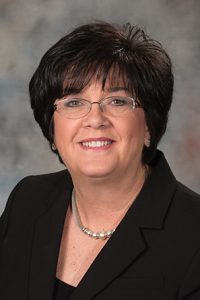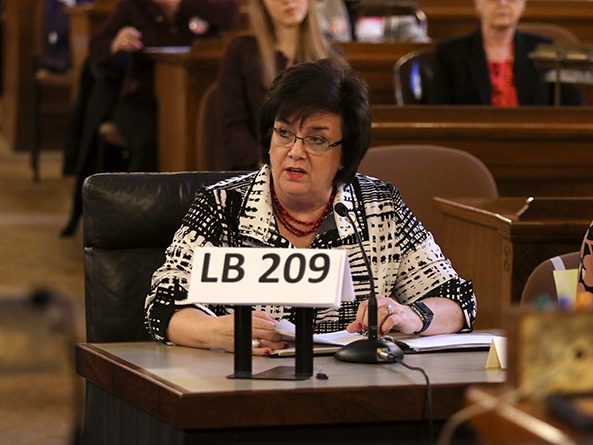Bill would expand informed consent for abortion
Medical providers would be required to provide additional information under a bill heard March 20 by the Judiciary Committee.

LB209, sponsored by Thurston Sen. Joni Albrecht, would require medical providers to inform a patient seeking an abortion that it may be possible to reverse a medical abortion if the patient changes her mind.
Nebraska already has an informed consent framework that lists a number of things an abortion provider must tell a pregnant woman, Albrecht said, and that should include information about her options should she change her mind.
“Informed consent is the bedrock of good medical practice whether in surgery, taking medication or any other medical procedure,” she said. “For the woman who makes the choice to pursue the reversal, it gives her the opportunity to spare herself the regret of a no longer wanted abortion as well as the pain and regret of losing a wanted child.”
The state Department of Health and Human Services would be required to develop and maintain information about the effects of reversing a medical abortion, which would be available on the agency’s website.
Teresa Kenney, a women’s health nurse practitioner, spoke in support of the bill. Kenney said the abortion pill reversal protocol is safe, based in science and successful.
“The emotional pain a woman goes through in deciding to have an abortion is real and it is no less painful and traumatic when she decides that she made the wrong decision and wants a second chance,” she said. “Abortion pill reversal is great news for a woman caught in a situation where she changes her mind about abortion and wants to carry her baby.”
Women in Nebraska deserve to have all the information available to them before making such an important decision, said Marion Miner, representing the Nebraska Catholic Conference.
“LB209 is a common-sense information bill that gives a woman a second choice when they regret their decision to start an abortion,” he said. “One can only imagine the devastation a woman might feel months or years later when she discovers it may have been possible to save her baby, if only she had known about the resources available to her.”
Opposing the measure was Deborah Turner, a physician speaking on behalf of Planned Parenthood. The bill would force medical providers to counsel patients based on information that has not been studied thoroughly or approved by the U.S. Food and Drug Administration, she said.
“Medical abortion is a safe procedure that has been studied and approved by the [FDA], in contrast to the idea that the process can be reversed by administering reversal doses of progesterone, which has not been studied, evaluated or proven,” Turner said.
Scout Richters, representing the ACLU of Nebraska, also opposed LB209. She said that similar language was adopted in Arizona but reversed after it was challenged as an infringement on medical providers’ First Amendment protection against compelled speech.
“This is an unnecessary and dangerous intrusion into the patient and provider relationship,” Richters said. “It forces doctors to give patients inaccurate and misleading information about unproven and experimental treatments that compromises care as well as trust between a patient and her provider.”
The committee took no immediate action on the bill.


